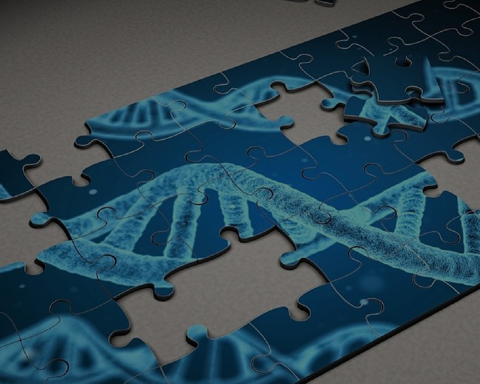Press Release: Clarity Necessary on Catholic Church’s Opposition to Euthanasia and Assisted Suicide
Read in PDFThe Anscombe Bioethics Centre has stressed the need for clarity in the wake of a controversy caused by the reported remarks by Archbishop Vincenzo Paglia, President of the Pontifical Academy for Life, on the issue of euthanasia and assisted suicide (EAS). Speaking in a speech last Friday, during the International Journalism Festival in Perugia, Paglia concluded his remarks by saying:
“[I]t is not to be ruled out that in our society a legal mediation is feasible that would allow assistance to suicide under the conditions specified by [the recent Italian Constitutional Court judgement on assisted suicide]... Personally, I would not practise suicide assistance, but I understand that legal mediation may be the greatest common good concretely possible in the conditions in which we find ourselves”.
Whilst his words were widely interpreted as being a statement in favour of assisted suicide, the Pontifical Academy for Life later explicitly denied that the Archbishop is in favour of laws permitting EAS, pointing to the same speech, and has now issued an explanation in which he, “in full conformity with the Church’s Magisterium, reaffirms his ‘No’ to euthanasia and assisted suicide”.
The teaching of the Catholic Church is clear that there is a development of doctrine in matters of morals as there is in matters of faith. The Church comes to a deeper understanding of the truth over time. At the same time, there are central truths which the Church holds to be unchangeable, including the wrongness of suicide and euthanasia. This was made clear by Saint Pope John Paul II in his Encyclical Evangelium Vitae (section 57):
“Therefore, by the authority which Christ conferred upon Peter and his Successors, and in communion with the Bishops of the Catholic Church, I confirm that the direct and voluntary killing of an innocent human being is always gravely immoral. This doctrine, based upon that unwritten law which man, in the light of reason, finds in his own heart (cf. Rom 2:14-15), is reaffirmed by Sacred Scripture, transmitted by the Tradition of the Church and taught by the ordinary and universal Magisterium”.
This same teaching has been reiterated many times by Pope Francis, not least in the letter of the Congregation of the Doctrine of the Faith which he signed: Samaritanis bonus: on the care of persons in the critical and terminal phases of life. This quotes the warning of His Holiness that the acceptance of euthanasia and assisted suicide are part of a larger socio-cultural context that “is gradually eroding the awareness of what makes human life precious. In fact, it is increasingly valued on the basis of its efficiency and utility, to the point of considering as ‘discarded lives’ or ‘unworthy lives’ those who do not meet this criterion” (section V.1).
There can be no doubt then, that the Catholic Church remains unequivocally opposed to EAS in the strongest terms: “Whatever its motives and means, direct euthanasia consists in putting an end to the lives of handicapped, sick, or dying persons. It is morally unacceptable” (Catechism of the Catholic Church, 2277).
The ways in which the harms of euthanasia and assisted suicide are manifested in jurisdictions which have experimented with those practices have been highlighted by the Anscombe Centre in our series of Briefing Papers over the last year-and-a-half on this issue, including cutting-edge research into the effect that the introduction of EAS has on incidence of suicide rates and thus on society’s important efforts towards suicide prevention.
It is a matter of great regret that the words of Archbishop Paglia, spoken in Italian and addressing a particular Italian legal context, have been taken as implying that the Catholic Church is open to the legalisation of euthanasia and assisted suicide. On the contrary, such laws are always unjust and represent failure of solidarity and of commitment to suicide prevention and the care of the vulnerable. We urge those making such public statements on EAS to be careful of the effect of their words on others.
David Albert Jones, Director of the Anscombe Bioethics Centre, said:
“Euthanasia and assisted suicide are issues that do not only affect Catholics or people of faith. These issues essentially concern solidarity, respect for the dignity of human life, and realism about the danger of allowing state sanctioned taking of life. They affect everybody. While Archbishop Paglia’s words, as reported, are open to misinterpretation, they are a useful occasion to restate the Catholic Christian understanding of the matter. Every suicide, assisted or unassisted, is a tragedy, whether of the young or of the old, whether of the healthy or of the sick. There are no lives unworthy of life”.
END
Notes to Editors:
- A fuller opinion piece on this issue written for the Catholic Herald by our Director, Professor David Albert Jones, can be read here.
- For more information on the Anscombe Bioethics Centre, see our website: www.bioethics.org.uk.
- For interviews or comment, contact: media@bioethics.org.uk or 07900925708.
Most recent
Press Release – Anscombe Bioethics Centre Launches ‘Advance Decisions and Ethical Choices’ Project
31 July 2025
The Anscombe Bioethics Centre is pleased to launch a new suite of resources on advance statements, l...
Statement on the Anscombe Bioethics Centre
31 July 2025
A statement from the Governing Body of the Anscombe Bioethics Centre and the Trustees of the Catholi...
Copyright Announcement
25 July 2025
Henceforth, all work which had Anscombe Centre or Linacre Centre copyright is now dedicated to the p...
Sincerest Thanks for Your Support
Staff are grateful to all those who sustained the Centre in the past by their prayers and the generous financial support from trusts, organisations, communities and especially from individual donors, including the core funding that came through the Day for Life fund and so from the generosity of many thousands of parishioners. We would finally like to acknowledge the support the Centre has received from the Catholic community in Ireland, especially during the pandemic when second collections were not possible.
We would like to emphasise that, though the Centre is now closed, these donations have not been wasted but have helped educate and support generations of conscientious healthcare professionals, clerics, and lay people over almost 50 years. This support has also helped prevent repeated attempts to legalise euthanasia or assisted suicide in Britain and Ireland from 1993 till the end of the Centre’s work on 31 July 2025.



